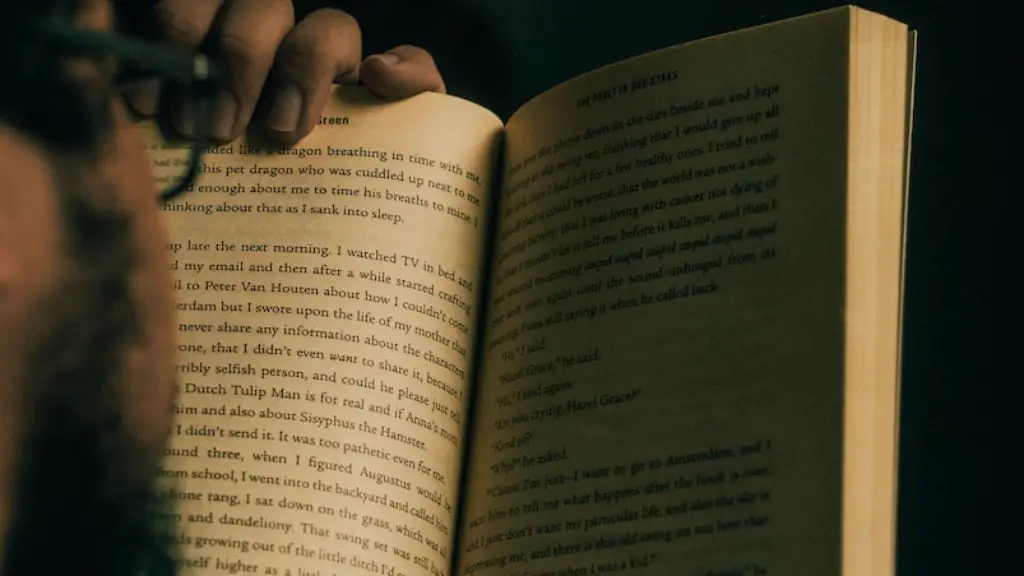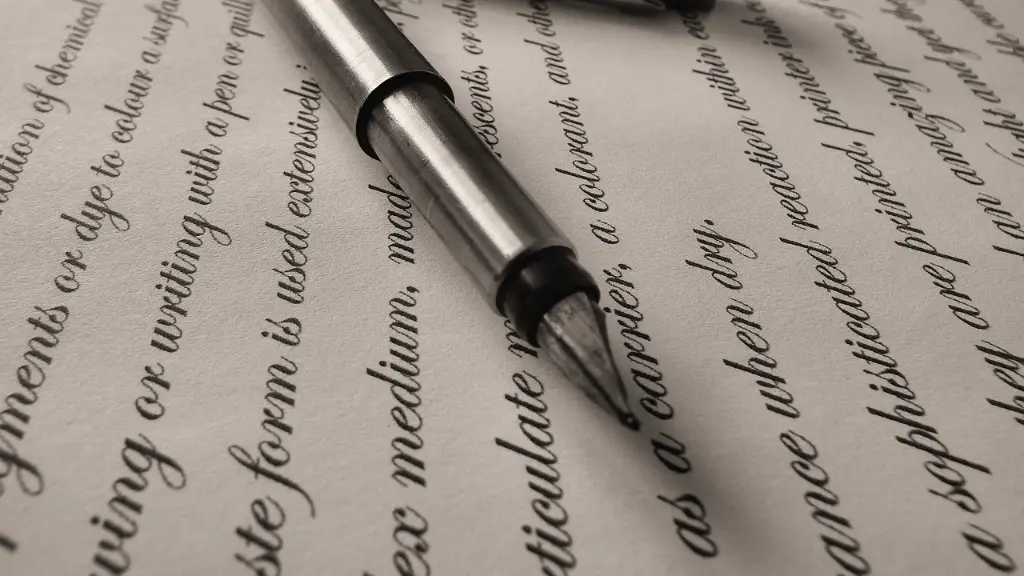Introduction
Poetry can be a great way to express thoughts and feelings in an interesting and unique way. Although there are many similarities between prose and poetry, there are also distinct differences. Prose is generally easier to read and understand, while poetry often requires a bit more effort and interpretation. Poetry is often considered a more creative form of writing and can allow for more experimentation with word choice, structure and rhymes. In this article, we will explore the major differences between poetry and prose, as well as how each form can be used in writing.
Defining Poetry and Prose
In order to truly understand the differences between poetry and prose, it is important to define their individual meanings. Prose is a form of writing that is free from any strict meter or rhyme. It is usually characterized by a continuous flow of ideas, images and narration. Many different types of writing fall under the umbrella of prose, such as fiction, non-fiction, and essays. Poetry, on the other hand, is a form of writing composed of a rhythmic arrangement of words. It often follows a rhyme scheme and is written in meter, or a set number of syllables per line. Poetry is typically composed of a single subject matter that is explored in depth, while prose is usually more broad in scope and can discuss multiple topics at once.
Meaning
The main difference between poetry and prose is that poetry is typically much more meaningful. While prose is often written to tell a story or provide facts, poetry is focused on expressing deeper emotions in an imaginative and captivating way. Through the use of figurative language, poetry can convey meaning in an artistic and profound manner. Poems may use rhyme and meter to add structure and rhythm, helping to make their thoughts feel even more meaningful. Prose, on the other hand, is more straightforward and to the point, lacking the complexity and vividness of poetry.
Style
The style of writing between poetry and prose is also very different. Prose is typically written in paragraphs and should generally follow a typical narrative structure. It has a linear flow and is slightly easier to read than poetry. Poetry, on the other hand, is often composed of complex language and usually breaks up its thoughts into separate lines and stanzas. The use of line breaks, rhyme and meter can help to make poetry more interesting and engaging, while prose usually sticks to a more straightforward writing style.
Word Choice
Prose and poetry both employ the use of words to convey meaning, but each does so in its own unique way. In prose, words should be chosen for their ability to clearly and concisely convey the necessary information. Poetic writing, on the other hand, is often more imaginative and appeals to readers’ emotions. Poets are free to use words to explore ideas in a creative way that often draws attention to the beauty of language. Some choose to use flowery language to convey deep feelings while others may use a simple and minimalistic writing style.
Structure
The structure of prose and poetry is also very different. Prose is traditionally written in paragraphs, each providing a new idea or perspective on the subject matter. It is linear and organized, with one main goal of telling a story or providing information. Poetry is far more open-ended and free-flowing, often allowing the poet to explore ideas in any way they choose. This freedom may come in the form of unique rhyme schemes, line breaks and syntax.
Emotional Trigger
The ability for poetry to bring about emotion is one of its defining characteristics. While prose can be detailed and thought-provoking, poetry often has more potential to evoke an emotional response. This is accomplished by painting a vivid picture through the language and by exploring subject matters such as love, loss, happiness, and grief in an artistic and creative way. Poetry can be deeply moving and is a great way to express strong feelings in a beautiful and memorable way.
Experimentation
One of the greatest differences between poetry and prose lies in experimentation. Poetry is often much more open to creative experimentation than prose. Poets may use words to explore ideas in new and exciting ways, often breaking conventions and playing with language in unexpected ways. The free-form nature of poetry opens up opportunities to explore language in unique ways that can be hugely rewarding. Prose often has to stick to more traditional and straightforward writing conventions.
Audience Engagement
Another major difference between prose and poetry is the potential for audience engagement. Poetry may be more difficult to read and comprehend than prose, but this can be a great way to engage and intrigue readers. This is partially due to the freedom and complexity of language that poets may use. It is much easier for readers to interpret and connect with poetic writing on a deeper level than with prose.
Word Count and Narrative Length
The length of prose and poetry can also differ greatly. Prose stories and books may span dozens or even hundreds of pages, while poems are often much shorter. It is possible to write lengthy poems, but they often focus on a single subject or idea. Poems may be written with an eye for concise language, resulting in a powerful but not overly lengthy piece of writing.
Formal Conventions
The use of formal conventions is another difference between prose and poetry. Prose is often written with a focus on clear communication, while poetic writing often deviates from the traditional rules of grammar to capture the emotion and beauty of the written word. This can include breaking grammar rules, writing without punctuation, and playing with the structure of sentences. Poetry can also come in the form of lyrical songs, the structure of which follows its own set of conventions designed to make the poem easier to sing.
Rhythm
The use of rhythm and meter is another major difference between prose and poetry. Poems are often composed in a rhythmic pattern, while prose typically has no strict underlying rhythm. The use of rhyme and meter adds order and structure to poetic writing and can add an extra layer of meaning to the words. This is one of the reasons why poetry is often so powerful and captivating.
Wordplay
Another difference between prose and poetry is the potential for wordplay. Prose is often written with a focus on clear communication, while poetry often allows for more inventive and creative uses of language. Poets may choose to play with words in terms of homophones, metaphor, similes, and other figures of speech. This can make the words and phrases of a poem more meaningful and captivating to readers.
Conclusion
Although there are many similarities between prose and poetry, there are also stark differences between them. Poetry often employs a more creative use of language, resulting in pieces of writing that are more meaningful and emotionally engaging. Prose, on the other hand, is usually focused on straightforward communication and may be easier to read and comprehend. Each has its own place in writing, and being able to understand the differences between them can help authors to create more captivating and powerful writing.



